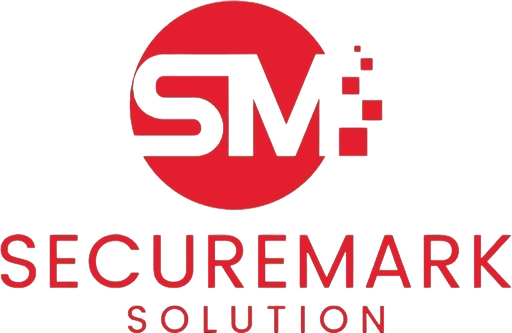Protect your brand online in just minutes with Trademark Engine. Starting at $99 + USPTO fees.
120,000+ trademarks filed since 2016
35,000+ five-star reviews
Rated 4.8 by Forbes Advisor
I only need what it takes to file
+ federal filing fees
Get the most out of our trademark service if you’re on a budget
+ federal filing fees
Our recommended best value trademark filing package
+ federal filing fees
Everything included in the Deluxe package, plus:
Includes:
Get your trademark registered in just 3 easy steps using our simple online questionnaire.
Whether you prefer to handle your trademark filing on your own or want the expertise of an attorney, we have options to suit your needs. Simply fill out our short questionnaire to get started.

Most of the brands, logos and slogans you love, know and trust have been registered. A registered mark gives you a presumption of ownership and a presumed right to use the brand nationwide giving you broader protection in courts. Once registered, present yourself as an established and serious business with the ® symbol after your name, logo or slogan. Other benefits include:
Presumed validity of the mark if you have to sue
Additional remedies in court
May increase the value of your company
Before spending your time and money filing an application, you should do a search to see if your mark is already in use or registered by someone else. A search will help avoid obvious duplications of pre-existing marks. If the USPTO rejects your application, the fees to Trademark Engine and the USPTO are not refundable. If your company is just beginning, it’s better to make name changes now rather than invest in building a brand only to learn that you have to change the name and lose all of your goodwill. All packages include a free, federal direct-hit search. We also offer more comprehensive searches that will include wider searches on the federal, state, common law, and global levels. Enjoy a better peace of mind while your trademark application is pending with the USPTO.

Harvey assisted me with monitoring and maintaining my trademark. I would be thrilled to collaborate with Securemark Solution once more
James Holland
I felt quite puzzled about how to safeguard my brand identity, but fortunately, I discovered Securemark Solution . They proceeded to complete the whole task for me at a very fair cost
Kevin Stern
This organization has supported me greatly. I would certainly be interested in collaborating with them again
Michael
Ryan brightened my day. I awaited the serial number for my trademark, but the system kept my application in the same status for days without advancing it. Within a few hours, he addressed the problem and ensured my satisfaction
Jill Smith
Collaborating with Securemark Solution was an incredible experience. Chris and his team are quite supportive and professional
Andrea Switzer
Securemark Solution is excellent. Resolved my questions much faster than the other five companies I contacted about the same issue. Appreciate your quick resolution to the issue!
Jill Smith
All was timely and executed excellently. I had no trouble having my concerns acknowledged and addressed
Joe Howard
Outstanding and attentive customer support. They dedicated time and attention to address my worries and alleviate my fears of making an incorrect filing. I truly value it and am reassured about the filing procedure! Thank you
Darrel Townley
Excellent customer service. Every staff member I’ve communicated with since beginning my trademark journey has been professional, polite, supportive, and understanding
Jordan Hales




Still have questions? Call 1 (877) 721-4579 or LIVE CHAT with us for real-time support.
A trademark safeguards distinct and exclusive names, logos, and symbols associated with your products or brand identity.
Trademark protection can extend to business names, symbols, logos, sounds, and even colors that represent a particular brand. Once registered, an individual can generally begin using the ® symbol after their name, logo, or slogan
Consider a fruit with bite marks linked to Apple computers; it’s an illustration of a distinctive logo that is protected by trademark. The iconic Apple logo serves as a distinctive emblem, enabling instant recognition of the brand and its products for consumer.
Trademarking is an important step for protecting your brand identity. It will stop competitors from poaching your customers by imitating your brand. It can also offer you some protection if those copycats do something reputation-damaging.
Federal trademarks offer legal safeguarding for your brand throughout the United States, assisting in the prevention of counterfeiting and fraud. It also provides you the capability to take legal action against your rivals for copying your concepts
You will possess sole rights to your brand’s names, slogans, and logos
Safeguard your brand identity and simplify legal action against competitors who plagiarize your concepts
Save yourself from the hassle of expensive redesigns after finding out you’re violating existing trademarks.
After registering your trademark, you can utilize the ® trademark registration symbol, signaling others to steer clear of your brand and enhancing its credibility
Anyone who asserts ownership of a mark or intends to possess the concept may submit an application for trademark registration. The application must explicitly specify the trademark, the services or products, the name and address of the applicant, and the duration of use of the mark along with a signature.
If you’re launching a new brand identity or intending to provide newly branded services or products, you ought to think about registering your trademark to safeguard your business from imitators and rivals.
You can readily prevent someone from using your trademark if you demonstrate that you were the original user and that the two names are likely to confuse consumers.
Certainly, the Federal Registration will possess a more effective system to prevent violators. You will similarly possess the usual legal rights to prevent them while you carry out legal transactions.
No, we are not a law office, and we do not provide legal counsel. Nonetheless, our skilled team of trademark registration specialists has assisted more than 50,000 business owners in registering their trademarks.
They are familiar with the details of trademark registration and understand precisely how to enhance your likelihood of obtaining the trademark.
Brand name
A trademark typically safeguards a word, phrase, symbol, and/or design that identifies the origin of the products — what we consider as brand name and brand awareness. A trademark, when appropriately cared for, can endure indefinitely.
Patent
A patent typically safeguards an invention, which can encompass its functionality or design, or stated differently, “any novel and useful process, machine, manufacture, or composition of matter, or any new and beneficial enhancement thereof.” 35 U.S.C. § 101. A patent generally grants the holder the sole right to produce goods or utilize methods included in the patent for 20 years from the initial priority date.
Copyright
Copyrights typically safeguard creative works like literature, images, artworks, films, and musical pieces.
What is the duration of federal trademark registration?
It may endure for as long as 10 years. Renewal of the registration is straightforward as long as you have ensured consistent use of your trademark in interstate commerce.
One way to understand a trademark is that it is a word, phrase, symbol, and/or design that identifies and distinguishes the source of the goods of one party from those of another party. A “service” mark distinguishes the source of a service, rather than a good, but the two are typically simply referred to as a “trademark” or “mark”. In more general terms, getting a trademark protects a brand. Many of the well-known brands, logos and slogans you love, know and trust have been registered with the United States Patent and Trademark Office.
Generally, the registration of a trademark entitles the registrant to a presumption of ownership of the brand on a national level and a presumed right to use the brand nationwide. It may help prevent someone from registering a confusingly similar mark later and may also help the registrant bring a case in federal court if someone infringes on the brand. Once registered, a registrant can typically start using the ® symbol after the name, logo or slogan.
After a mark is properly registered and used for a five-year period, Trademark Engine can also help file a “Declaration of Incontestability.” Considered by some the greatest protection under U.S. trademark law, this may help prevent others from contesting a trademark on the following grounds: (1) the mark is not inherently distinctive; (2) it is confusingly similar to another mark that someone else began using first; or (3) the mark is simply functional as opposed to identifying the source of the goods or services.
Under U.S. law, a “common law trademark” is generally established when someone uses a company name, logo or slogan in commerce, even if it is not registered. So, why pay to register a trademark when a common law trademark may already exist? Common law rights ordinarily are limited to the geographic area where the mark is used as opposed to the nationwide protection customarily obtained when a mark is registered with the USPTO. So, unless registered, the use of a mark can be geographically limited, which hampers the ability to expand the brand. On the other hand, a person using a mark in a limited geographic area could be boxed in by someone else who offensively registers a similar mark. In addition, registration of a trademark can give the person holding the registered trademark a leg up in court as to the validity of the mark and the date of usage in later trademark infringement litigation, if it comes to that. There are also favorable remedies available to registered trademark owners in the event of litigation. Finally, once a trademark is accepted by the USPTO, it will be maintained in the USPTO database, which can discourage others from using the mark in the future. Future companies should be on notice that the mark is already spoken for, which should in turn help avoid at least some disputes.
There may be advantages to registering both a name and an associated logo. But bear in mind, each filing requires its own government filing fees and processing fees to Trademark Engine so registering both costs more than $600.
A more budget-friendly option could involve registering just a company name. Wrongful use of names seems to be more common than wrongful use of logos. Trademarking a name generally provides broader protection because it prevents any use of the name that causes confusion, even if someone tries to use the name within a unique logo.
A mark for a logo typically protects the shape, orientation, stylization and sometimes color in that particular logo. Registering ordinarily prevents others from using that logo or something confusingly similar to the logo. Even if a company name is in the logo, registering the logo may only protect the use of that name in the particular way it is used in the logo and not the use of the name more generally. Moreover, amended or redesigned logos usually require a new application for the new logo. As may be expected, logo changes seem to be more common than name changes.
Much like how the availability of a corporate name in a given state does not necessarily provide superior trademark rights to use the name in commerce, the availability of the domain name is not an indication either. A company could have a trademark name on a product or service, but not have acquired the domain name.
The availability of the domain name should be one part of a comprehensive search, which Trademark Engine offers, to help evaluate the strength of a brand name or slogan and the likelihood of a trademark being approved.Using a domain name as part of a brand that sells goods or services may establish common law trademark rights. A “common law” trademark can be established when a name, logo or slogan is used in commerce, even if it is not registered. Common law rights, however, are limited to the geographic area where the mark is actually used as opposed to the nationwide protection typically established by registration of a mark with the USPTO.
The geographic limitations of an unregistered mark can make it difficult to expand a business. On the other hand, a person using a mark in a limited geographic area could be boxed in by someone else who offensively registers a similar mark. In addition, registration of a trademark customarily gives the person holding the registered trademark a leg up in court as to the validity of the mark and the date of usage in later trademark infringement litigation, if it comes to that. There are also favorable remedies available to registered trademark owners in the event of litigation. Finally, once a trademark is accepted by the USPTO, it should be maintained in the USPTO database, which can discourage others from using the mark in the future. Future companies should be on notice that the mark is already spoken for, which should in turn help avoid at least some disputes.
General benefits to registering a mark:
If investing heavily in a marketing campaign with a slogan, a company might consider registering a slogan as well. Short catch phrases or sayings that are sold as part of merchandise (like shirts or hats) can also be registered. The same rules apply that are applicable to picking and registering a company name. Namely, the slogan should be inherently distinctive and creative or have developed a secondary meaning. In other words, “really good pizza” probably can’t be trademarked unless that saying has become so famous that most consumers associate it with a certain pizza brand.
The whole process will usually take anywhere from 5 to 10 minutes on the Trademark Engine website. For a typical application, be prepared to provide at least the following:
*After a 10-day free trial, your Trademark Monitoring subscription will automatically renew for $175 quarterly. *The law firm responsible for the portion of this page constituting an advertisement is Swyft Legal, LLC who can be reached at support@Securemarksolution.com. Swyft Legal, LLC is licensed by the Arizona Supreme Court under license number 70173. All legal services provided in connection with the attorney-led trademark process are provided by Swyft Legal, LLC. Trademark Engine is an affiliate of Swyft Legal, LLC.
Thousands have protected their brand by filing a trademark.
